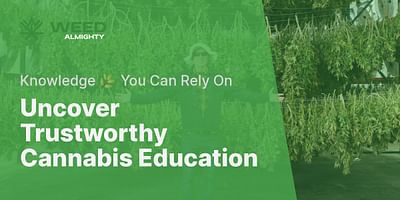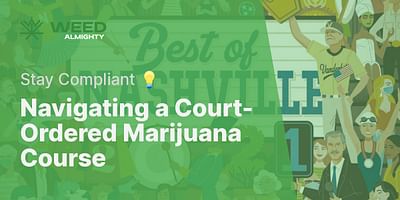Jasmine Patel is a cannabis chef and writer. She has been cooking with cannabis for over five years and has a passion for creating delicious and healthy cannabis-infused dishes. When she's not in the kitchen, you can find her writing about her experiences and sharing her recipes with others.
Hey there! If you're interested in working in the cannabis industry, you might be wondering what kind of education you need to get started. Well, the good news is that the requirements can vary depending on the specific job you're interested in. Let's break it down!
1. Entry-Level Positions:
For many entry-level positions in the cannabis industry, formal education isn't always a strict requirement. These roles often focus more on practical skills and experience. However, having a high school diploma or GED is generally expected. Some common entry-level positions include budtenders, trimmers, and packaging associates.
2. Specialized Roles:
If you're looking to work in more specialized roles like cultivation, extraction, or laboratory testing, additional education or training may be necessary. Many cannabis companies prefer candidates with a background in horticulture, chemistry, or related fields. Consider pursuing a degree or certification in these areas to enhance your knowledge and marketability.
3. Cannabis Industry-Specific Education:
As the cannabis industry continues to grow, more educational programs and courses are becoming available. These programs are designed to provide in-depth knowledge and skills specific to the cannabis industry. They cover topics such as cultivation techniques, cannabis laws and regulations, product development, and business management. Completing these courses can give you a competitive edge and demonstrate your commitment to the industry.
4. Compliance and Legal Roles:
If you're interested in working in compliance or legal roles within the cannabis industry, a background in law, business, or regulatory affairs can be beneficial. Understanding the complex legal landscape surrounding cannabis is crucial in these positions. Consider pursuing a degree or certification in law, business administration, or regulatory affairs to increase your chances of landing these types of roles.
5. Networking and Experience:
While formal education is important, don't underestimate the power of networking and gaining hands-on experience. Attending industry events, joining professional organizations, and connecting with industry professionals can open doors and provide valuable insights. Additionally, volunteering or interning at cannabis-related businesses can help you gain practical experience and make valuable connections.
Remember, the cannabis industry is still relatively new and evolving, so there's no one-size-fits-all answer to the education requirements. It's always a good idea to research the specific job you're interested in and see what qualifications are commonly sought after.
To sum it up, while formal education can be beneficial, it's not always a strict requirement for entry-level positions. Specialized roles may require specific degrees or certifications, and industry-specific education programs can provide valuable knowledge. Networking and gaining hands-on experience are also crucial for success in the cannabis industry.
I hope this helps you navigate the education requirements in the cannabis industry! If you have any more questions, feel free to ask. Good luck on your cannabis career journey!















